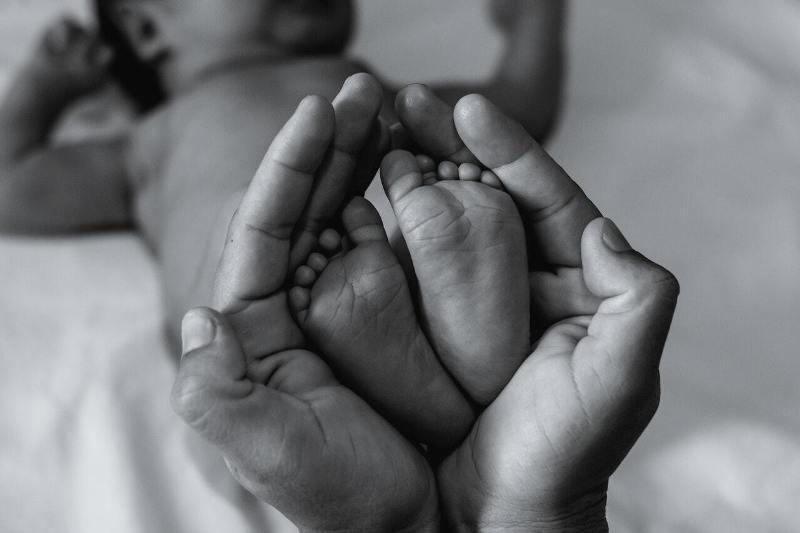Fathers Are More Than Money: Redefining Fatherhood
Dr Garth Japhet, Nkosinathi Sixabayi and Olefile Masangane
As South Africa faces the harrowing effects of the KwaZulu-Natal floods in the midst of COVID-19 and a worrying economic outlook, ordinary people and their families are most impacted.
Parents, especially fathers, then have to rethink what parenting is in a difficult environment – especially when money is tight.
What does it mean to be a father? In South Africa, the social role performed by men in relation to children is complex when it is defined solely by financial provision.
According to a study that forms the basis of the Heartlines Fathers Matter project, many men and women in South Africa understand the primary role of a father to be one of provision.
Parents – especially fathers – must rethink what parenting is when they are unable to adequately provide financially.
Stats SA’s latest unemployment data highlights that the unemployment rate for men is 32,8%. Manufacturing and construction, both predominantly male-dominated industries, reported the biggest job losses.
Undoubtedly, Black women carry the heaviest burden of economic decline in South Africa. The Stats SA data show that from October to December 2021, the unemployment rate among women was 38,2%, which worsened from the previous quarter’s 37,3%.
However, society’s perception of an unemployed man is far more judgemental than of a woman. A man of little means does not typically command much respect. In many South African cultures, an unemployed or poor man is indirectly infantilised.
A female participant in one of Heartlines’ research focus groups articulated this when she said: “If he can’t provide, I don’t need another child in my house.” These sentiments and belittling terms such as umahlalela (a person who has nothing to do) can erode a father’s mental health, dignity and self-esteem.
As a father’s self-esteem is closely linked to being able to provide for his family, not being able to provide can make him feel as though he does not have a crucial role to play in the family.
From Heartlines’ research, we have seen that many men have opted to withdraw from family life rather than struggle with not being able to provide. We have also seen that unemployment is one of the leading reasons for absentee fathers. This can take the form of being physically or emotionally absent, or both. This goes against the prevailing narrative that men just abandon their families as they are “dead beat” dads who do not care.
In South Africa, children from birth to 17 are less likely to live with their biological fathers.
“Children not staying with their father would lack exposure both to an adult male role model and to the skills and processes involved in a committed adult relationship, and would most likely suffer from lack of some of the resources that they would have been entitled to,” the Stats SA Children’s education and well-being in South Africa reports.
There is never an excuse for being an absent father, especially when the reason is rooted in self-pity or a deflated ego. Fathers need to change the perception that they are merely ATMs or breadwinners with emotions made of steel.
The definition of what a father is can change. In his research, Eddy Mazembo Mavungu shares that like the social world itself, fatherhood is socially constructed.
“Traditionally, fathers have been regarded as mainly providers. However, as a result of women’s increasing entry into the labour market, there has been emergence of a new fatherhood model which has emphasised the need for fathers to be involved in caregiving activities,” Mavungu says.
Children are looking for presence, love and affection from their fathers, more than material things.
Present fatherhood is seen in the small yet big moments such as when a child does a little dance or sings a song and seeks validation for their performance. It would be sad for any father to miss out on such an intimate moment because of the perception that money marks fatherhood.
Society plays a role in deconstructing and reframing what a father is. It starts by challenging the lurking narrative that a father without adequate financial means is “useless”. Instead, we need to affirm and encourage fathers, especially given South Africa’s socio-economic context.
We recognise and applaud women for being the backbone of many homes in South Africa where fathers see parenting as optional. However, when there is a father in the home, it is in the child’s best interests for mothers to play a role in fostering healthy fatherhood.
Mothers can facilitate access to children, especially when fathers are not able to contribute financially. Fathers also have to gather the confidence to be present even during these trying times.
Being a father requires vulnerability, honesty with oneself and others and, quite plainly, showing up.
Dr Garth Japhet, Nkosinathi Sixabayi and Olefile Masangane are from Fathers Matter, a project of Heartlines, a South African-based NGO that aims to be part of addressing some of the issues facing society by helping move people from professed positive values to lived values





